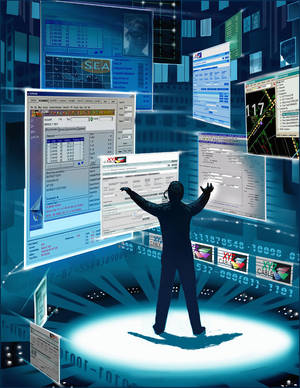Special Track on Smart Human Computer Interaction SAC 2015:
|
TRACK CHAIRS
|
GUIDELINES FOR SUBMISSION
Original and unpublished papers are solicited from the above-mentioned areas. The file format should be PDF. The author(s) name(s) and address(es) must not appear in the paper, and selfreference should be in the third person. This is to facilitate double blind review. Only the title should be shown at the first page without the author's information. Papers must be formatted according to the template which is available at the SAC 2014 website. Paper size is limited to six pages (covered by registration fee) plus two additional pages (at extra charge), being the total of eight pages maximum according to the above mentioned template. For papers accepted as posters, the length is two pages covered by registration fee plus one additional page (at extra charge), being the total of three pages maximum. A few key words should be provided. A paper cannot be sent to more than one track. Original manuscripts should be submitted in electronic format through the conference web site
http://www.acm.org/conferences/sac/sac2015/
Paper registration is required, allowing the inclusion of the paper/poster in the conference proceedings. An author or a proxy attending SAC MUST present the paper: This is a requirement for the paper/poster to be included in the ACM/IEEE digital library. No-show of scheduled papers and posters will result in excluding them from the ACM/IEEE digital library
Student Research Competition: Graduate students seeking feedback from the scientific community on their research ideas are invited to submit original abstracts of their research work in areas of experimental computing and application development related to SAC 2014 Tracks. The Student Research Competition (SRC) program is designed to provide graduate students the opportunity to meet and exchange ideas with researcher and practitioners in their areas of interest. For further details see the http://www.acm.org/conferences/sac/sac2015/SAC2015-CFSRC.pdf . Please submit your research abstract electronically to the SRC START submission systems in PDF format. Please see SAC 2015 website for the START system URL.
Important Dates
IMPORTANT DATES
Submission of regular papers and SRC abstracts: September 12, 2014
Submission of tutorial proposals: September 26, 2014
Notification of tutorials acceptance: November 3, 2014
Author notification for papers and SRC abstracts: November 17, 2014
Camera-ready copies of accepted papers: December 8, 2014
Author registration due date: December 13, 2014
Original and unpublished papers are solicited from the above-mentioned areas. The file format should be PDF. The author(s) name(s) and address(es) must not appear in the paper, and selfreference should be in the third person. This is to facilitate double blind review. Only the title should be shown at the first page without the author's information. Papers must be formatted according to the template which is available at the SAC 2014 website. Paper size is limited to six pages (covered by registration fee) plus two additional pages (at extra charge), being the total of eight pages maximum according to the above mentioned template. For papers accepted as posters, the length is two pages covered by registration fee plus one additional page (at extra charge), being the total of three pages maximum. A few key words should be provided. A paper cannot be sent to more than one track. Original manuscripts should be submitted in electronic format through the conference web site
http://www.acm.org/conferences/sac/sac2015/
Paper registration is required, allowing the inclusion of the paper/poster in the conference proceedings. An author or a proxy attending SAC MUST present the paper: This is a requirement for the paper/poster to be included in the ACM/IEEE digital library. No-show of scheduled papers and posters will result in excluding them from the ACM/IEEE digital library
Student Research Competition: Graduate students seeking feedback from the scientific community on their research ideas are invited to submit original abstracts of their research work in areas of experimental computing and application development related to SAC 2014 Tracks. The Student Research Competition (SRC) program is designed to provide graduate students the opportunity to meet and exchange ideas with researcher and practitioners in their areas of interest. For further details see the http://www.acm.org/conferences/sac/sac2015/SAC2015-CFSRC.pdf . Please submit your research abstract electronically to the SRC START submission systems in PDF format. Please see SAC 2015 website for the START system URL.
Important Dates
IMPORTANT DATES
Submission of regular papers and SRC abstracts: September 12, 2014
Submission of tutorial proposals: September 26, 2014
Notification of tutorials acceptance: November 3, 2014
Author notification for papers and SRC abstracts: November 17, 2014
Camera-ready copies of accepted papers: December 8, 2014
Author registration due date: December 13, 2014

